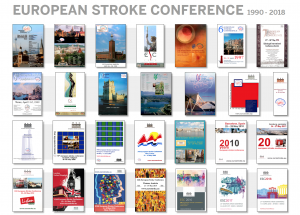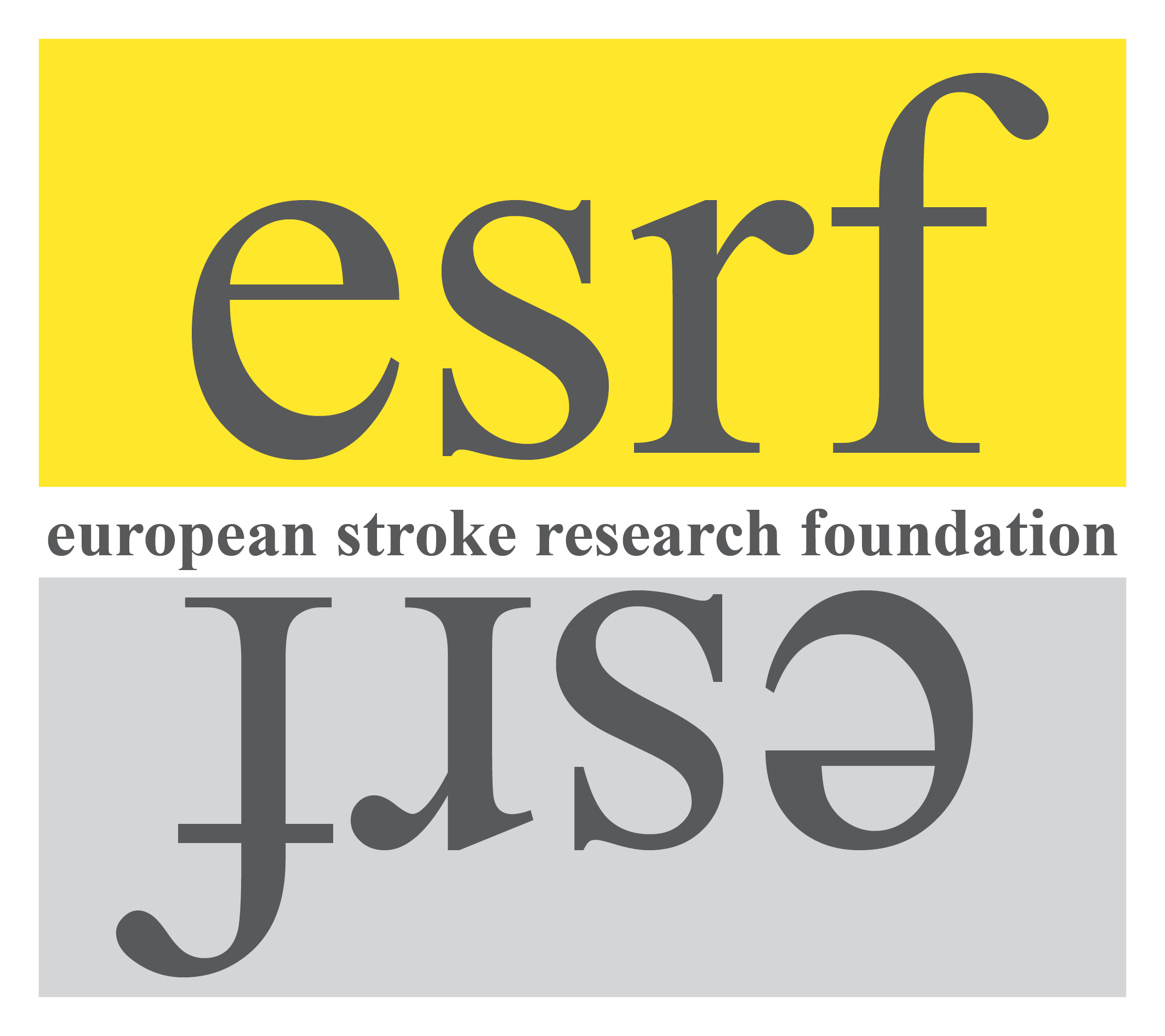About 30 years ago we initiated the European Stroke Conference – ESC in Düsseldorf, Germany – attended by 720 scientists and clinicians. The participants, mainly from Europe, were by plan to encourage exchange for the increasing efforts among European stroke researchers. This meeting was to be separate from the Stroke Meeting in North America, sponsored by the American Heart Association, which drew few stroke research presentations from European scientists, even though it gave itself the name the European Stroke Conference – ESC.
Over 25 years the ESC grew to become the world’s biggest stroke meeting – with about 4000 participants at the Nice 2014. During these years the ESC always met in attractive cultural places with increasing crowds drawn to clinical and basic science, lectures, and teaching courses around news in stroke research, with a stress on collegiality and friendship.
In the succeeding years, Vienna (2015), Venice (2016), Berlin (2017) and Athens (2018) the ESC faced competition from an increasing number of new meetings spawned in part by the awareness of the success of the ESC. It continued but without the inadequate ballast of industry/pharma lobby-related company sponsoring. Our meetings continued to attract attendees from an expanded global representation, featured more science, expanded the scope of stroke-related specialists beyond neurology, offered better time schedules for education and interaction, and introduced awards to young researchers up to 50.000 € annually . The anonymous, strictly quality-related selection processes worked under the auspices and support of the newly founded European Stroke Research Foundation ESRF – at the expense of a minor amount of attendants.
Today, aware of the increasing number of meetings, and faced with expectations of commercial sponsorship both for free participation, and the added risks of dilution of the programs content through marketing oriented commercial symposia, we have decided to stop our regular meetings.
We thank the thousands of participants, speakers, members of the faculties and scientific committees for their role in the growth of the ESC, and look back with warm memories of collegial days.
We plan to put all energy in innovative, creative, and future oriented stroke research by means of the ESRF.
Michael G Hennerici

European Stroke Conferences from 1990 – 2018
I. Düsseldorf, Germany 1990
II. Lausanne, Switzerland 1992
III. Stockholm, Sweden 1994
IV. Bordeaux, France 1995
V. Munich, Germany 1996
VI. Amsterdam, The Netherlands 1997
VII. Edinburgh, United Kingdom 1998
VIII. Venice, Italy 1999
IX. Vienna, Austria 2000
X. Lisbon, Portugal 2001
XI. Geneva, Switzerland 2002
XII. Valencia, Spain, 21-24 May 2003
XIII. Mannheim-Heidelberg, Germany, 12-15 May 2004
XIV. Bologna, Italy, 25-28 May 2005
XV.Brussels, Belgium 16-19 May 2006 2006
XVI. Glasgow, United Kingdom 29 May – 1 June 2007
XVII. Nice, France 13-16 May 2008
XVIII. Stockholm, Sweden 26-29 May 2009
XIX. Barcelona, Spain 25 – 28 May 2010
XX. Hamburg, Germany 24 – 27 May 2011
XXI. Lisbon, Portugal 22 – 25 May 2012
XXII. London, United Kingdom 28 – 31 May 2013
XXIII. Nice, France 6 – 9 May 2014
XXIV. Vienna, Austria 13 – 15 May 2015
XXV. Venice, Italy 13 – 15 April 2016
XXVI.Berlin, Germany, 24 – 26 May 2017
XXVII. Athens, Greece 11 – 13 April 2018
Wepfer Award
David Herrliberger – Selbstgefertigter Scan einer Grafik aus eigenem Bildarchiv.
Johann Jakob Wepfer (December 23, 1620 – January 26, 1695) was a Swiss pathologist and pharmacologist who was a native of Schaffhausen.
He studied medicine in Strasbourg, Basel and Padua, and in 1647 returned to Schaffhausen to practice medicine. Here he maintained a practice that extended into southern Germany. During his career he also served as a private physician and consultant to various members of royalty.
Wepfer is remembered for his work involving vascular anatomy of the brain, and the study of cerebrovascular disease. He was the first physician to hypothesize that the effects of a stroke were caused by bleeding in the brain. He also mentioned that these symptoms could be caused by a blockage of one of the main arteries that supply blood to the brain. From postmortem studies, he provided information on the carotid and vertebral arteries that supply the brain with blood. in 1658 he published a classic treatise on strokes, titled Historiae apoplecticorum.
Wepfer made important contributions in the fields of experimental pharmacology and toxicology. He conducted experiments on the toxicity of water hemlock, hellebore, monkshood and warned against the usage of arsenic, antimony, and mercury in medicine. In the fields of pharmacology/toxicology he published an influential work on water and poison hemlock called Cicutae aquaticae historia et noxae (1679).
Since 2005 an annual award for stroke research, named after Wepfer, is awarded at the European stroke conference.
The „Johann Jacob Wepfer Award“ of the European Stroke Conference honors scientists for their outstanding scientific work in the field of cerebrovascular diseases and significant contributions to our knowledge about treatment of acute stroke.
This award was dedicated to:
Prof. J.-C. Baron, United Kingdom in 2005
Prof. M. Kaste, Finland in 2006
Prof. C. Warlow, United Kingdom in 2007
Prof. M.G. Bousser, France in 2008
Prof. JP Mohr, USA in 2009
Prof. J. van Gijn, The Netherlands in 2010
Prof. W.D. Heiss, Germany 2011
Prof. L. Caplan, USA 2012
Prof. H.-C. Diener, Germany 2013
Prof. G. Donnan, Australia 2014
Prof. R. Sacco, USA 2015
